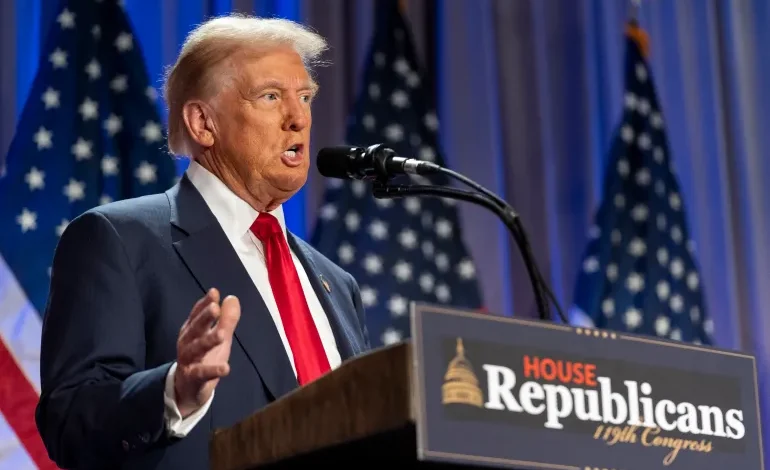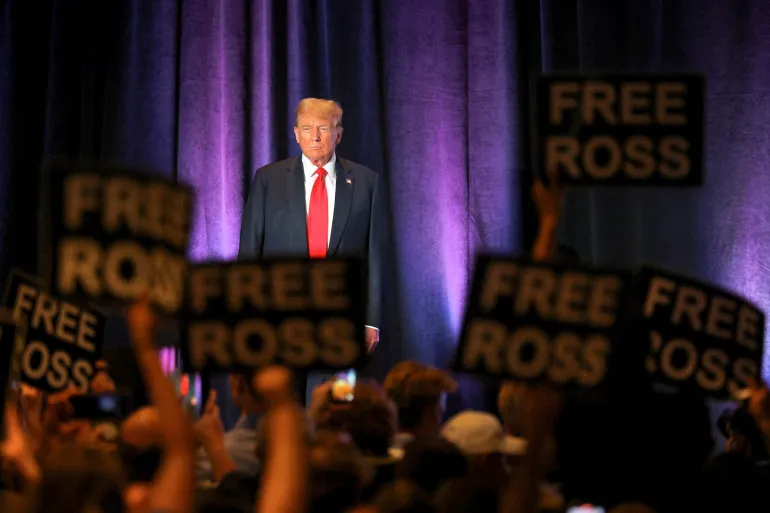Trump Promises Sweeping Tariffs on Mexico, Canada, and China, Rattling Global Markets

President-elect Donald Trump has announced plans to impose significant tariffs on goods imported from Mexico, Canada, and China, sending shockwaves through international markets, Al Jazeera reports.
In a series of posts on his Truth Social platform, Trump declared his intention to levy a 25 percent tariff on all goods from Mexico and Canada, effective immediately upon his taking office. He further stated that these tariffs would remain in place until the flow of undocumented migrants and drugs across the southern border ceases. Additionally, Trump announced a 10 percent tariff on Chinese goods, “above any additional tariffs,” citing the need to curb fentanyl smuggling.
The announcement marks the clearest indication yet of Trump’s commitment to his “America First” economic agenda, a policy that has been a central theme throughout his political career. The proposed tariffs are considerably more aggressive than any previously announced trade policies, and their potential impact on global trade is immense. While Trump made similar threats during his previous presidency, he did not fully implement them.
The immediate reaction in financial markets was dramatic. Currencies such as the Canadian dollar, Mexican peso, euro, British pound, Korean won, and Australian dollar all fell against the US dollar. Asian stock markets also experienced significant declines, with Japan’s Nikkei 225 index suffering a 1.59 percent drop.
Canada’s Deputy Prime Minister and Minister of Finance, Chrystia Freeland, responded by highlighting the strong trade relationship between the US and Canada and emphasizing the collaborative efforts to combat fentanyl trafficking. Ontario Premier Doug Ford called the proposed tariffs “devastating” for workers in both countries. The Canadian Broadcasting Corporation described the announcement as “his most severe threat against Canada in years.”
China’s embassy in Washington, D.C., issued a statement asserting that a trade war would benefit no one. Trump’s choice for Treasury Secretary, Scott Bessent, has previously described tariffs as a “useful tool” for strengthening negotiating leverage.
The proposed tariffs on Mexico and Canada raise serious questions about the future of the US-Mexico-Canada Agreement (USMCA). If implemented, they would represent a significant departure from the free trade principles enshrined in the agreement. Supporters of Trump’s policy contend that tariffs will bring manufacturing jobs back to the US and give the administration greater leverage in trade negotiations.
The potential economic consequences are staggering. In 2022, China, Mexico, and Canada accounted for a combined $830 billion in US exports and $1.43 trillion in US imports, according to the Office of the US Trade Representative.








